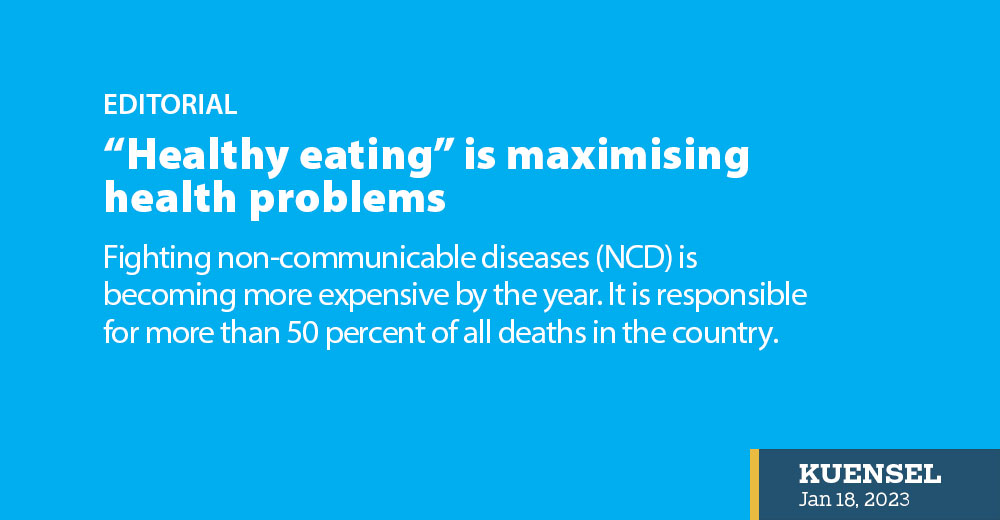Fighting non-communicable diseases (NCD) is becoming more expensive by the year. It is responsible for more than 50 percent of all deaths in the country.
As our society becomes more consumerist, the risk factors seem to be growing alarmingly, calling for radical action.
Stunting in children, for example, is a major problem. Studies, however, tell us that, this situation is expected to see a significant drop when the national health survey 2023, scheduled to begin in the second quarter of this year, is completed.
It is hard to buy when people’s dietary habits are not improving. The moment brands such as “organic” are mentioned, the average Bhutanese is not able to afford the asking prices in the market.
Many a study has found that Bhutanese dietary habits do not include healthy fruits. This may be true but how many Bhutanese do you really think would not like to spend on seasonal fruits if they were affordable?
NCDs are the leading cause of death the world over. To put it in a global perspective, it is estimated that each year more than 40 million lives are lost to NCDs.
Well-placed studies and reports tell us that almost 80 percent of all deaths related to NCDs occur in low- and middle-income countries. By 2025, the cost of under-investment in the fight against NCDs globally could run in the order of US$ 47 trillion.
Treatment and referral costs have seen a sharp rise in Bhutan over the years.
Hypertension, diabetes, cardiovascular diseases, cancer, alcoholic liver diseases, and mental health problems have become very common today.
Obesity and hypertension are among the major health problems in Bhutanese schools.
According to health records, in 2020, for every 10,000 people, there were 250.9 suffering from hypertension, 82.1 from diabetes, 34.6 from alcohol liver disease, 15.9 from depression, and 19.9 from cancer.
Our lifestyles have changed dramatically over the decade; our food habits have also altered significantly.
While the number of people who consume tobacco and alcohol has increased manifold, we work physically less. We are not just talking about suja, chillies, salt, and doma—we are consuming more oil-rich foods and preserved and packaged junk foods, which are much more easily available than locally produced fruits and vegetables.
Interventions have not kept up with deteriorating Bhutanese lifestyles. Because NCDs are preventable, we are wasting huge amounts of precious resources which could otherwise be spent on improving our healthcare system.
The real intervention should come from a radical policy shift. We should be able to eat what we produce. Food import does not do any good to us, especially packaged food.


